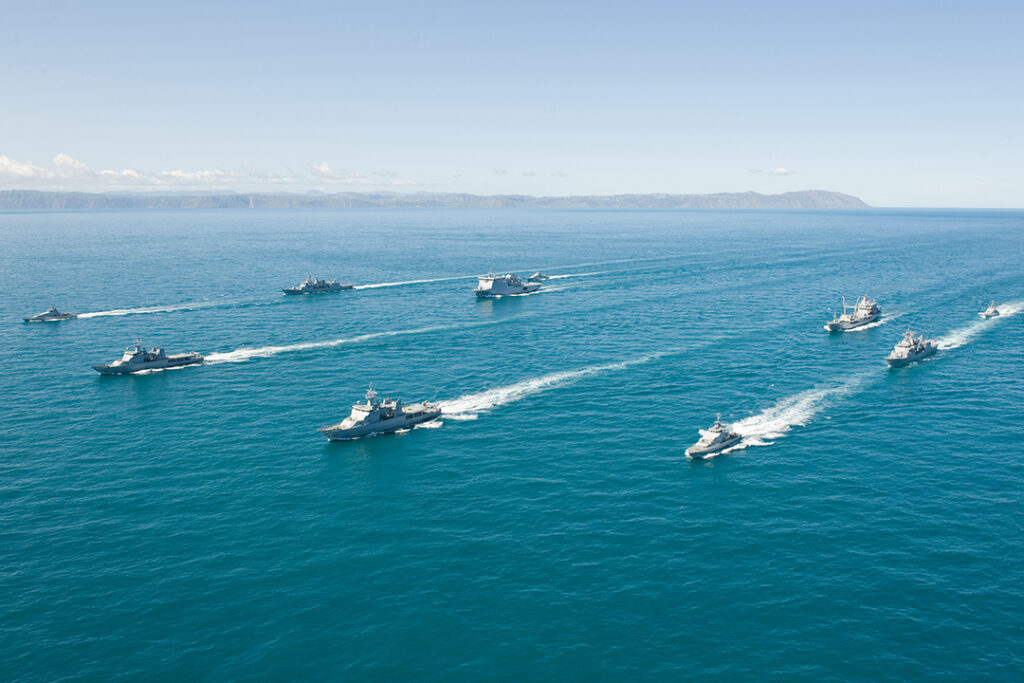
The ongoing violence in the Red Sea continues to be a headache for Western leaders as Houthi rebels continue their attacks in the region. Based in Yemen, the Iranian-backed terror group has been disrupting one of the world’s busiest commercial shipping lanes in the Red Sea for almost as long as the latest installment of the Israel-Hamas conflict, which commenced on 7 October.
The aim? To pressure the West to stop supplying Israel with weapons. At the start of the year, Western powers led by the U.S. launched ‘Operation Prosperity Guardian’ to protect merchant ships entering the Suez Canal. This military campaign involved one American aircraft carrier, and naval vessels from the U.S., France and the United Kingdom. In 2024 so far, the U.S and U.K. in conjunction with its allies, have launched three separate airstrikes on Houthi bases. However, the Houthis appear undeterred by this latest show of Western strength, even vowing retaliation.
It leaves Western leaders with a truly difficult geopolitical situation. On one hand, they have a long-standing commitment to the preservation of international shipping lanes and free commerce, which they see as the bedrock to Western economic strength and global capitalism. Due to this, the West has seemingly come together and accepted that the U.S.-led strikes this month were a proportionate and necessary retaliation to protect global markets and the transportation of natural resources such as oil. Domestically, there has not been much fallout from these strikes, with Sir Keir Starmer’s Labour supporting the Government’s response. Likewise, the Biden administration has faced little backlash from major media outlets, stating it was only a matter of time before the United States were provoked into action, especially after the Houthi attack on a U.S.-owned cargo ship on 15 January.
So, what is the issue if the military action has been justified? Well, in spite of the unleashing of some good old ‘American freedom’ back into the Middle East, the Houthis are holding firm in the face of Western aggression, with their actions having seemingly escalated in the last week. In the wake of one of the largest pro-Palestine protests in the country’s history, U.S and U.K. aid workers were advised to leave Yemen within thirty days. Furthermore, the British warship HMS Diamond was recently forced to intercept a kamikaze drone. But most worrying of all is the death of three U.S soldiers in Syria following a drone attack on a U.S base in Jordan that wounded a further forty people.
The White House is now at a loss of what to do next, with some within the Pentagon advocating for further proportionate strikes on Iran; a risky option which would inevitably escalate the situation in the Middle East. In response to this increase in tension, U.S. Secretary of State Antony Blinken stated that the situation in the region had not been this dangerous since the Yom Kippur War in 1973,
Unfortunately for the United States, the levels of support from other global powers have been mixed. The French and Italian governments have already been condemned by U.S and U.K. media outlets for not taking more direct action in conjunction with their allies, despite a French warship being in the Red Sea. Australian Prime Minister Anthony Albanese was asked to provide further support for the intervention, yet a request for an Australian frigate warship to be sent to the Red Sea was deemed unrealistic within Australia by both the opposition and members of the Navy, if the country were to maintain a presence in the Indian Ocean. The United Kingdom however, is now rumoured to be sending one of its aircraft carriers to replace the USS Dwight D. Eisenhower as the flagship of Operation Prosperity Guardian. Although, with growing personnel concerns across the Armed Forces, critics fear the operational challenges this would incur.
This situation is a head scratcher for Western powers. However, with Russia already trying to reclaim large chunks of Europe, and Taiwan at the end of China’s guns, now is not the time for the West to be looking weak. But with the biggest election year in history coming up, the fear is that major world leaders will shy away from military action in this continuously violent part of the world, for fear of criticism from the opposition. Mind you, if Biden once again faces Mr Trump in this year’s U.S. election, my feeling is that he will be criticised no matter what he does.
Image: Crown Copyright 2011, NZ Defence Force, ‘Houthis Respond to US and British Strikes with More Attacks on Red Sea Shipping’ // CC BY 4.0 DEED



Average Rating